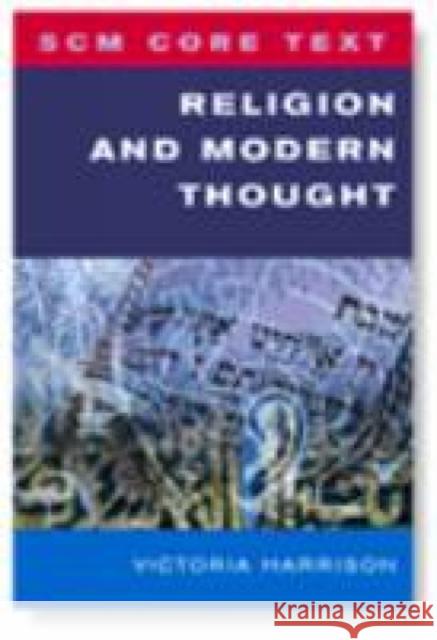Scm Core Text: Religion and Modern Thought » książka
Scm Core Text: Religion and Modern Thought
ISBN-13: 9780334041269 / Angielski / Miękka / 2007 / 450 str.
The SCM Core Text on Religion and Modern Thought examines in detail the relationship between religion and modern and post-modern thought and culture. The book provides an introduction to the extremely wide variety of forms of religious thought and examines how, in the West, adherents of Judaism, Christianity and Islam have responded to the impact of modernity upon religion, either by attempting to restructure their religious belief systems or by asserting a uniquely modern form of religious 'traditionalism'. The book focuses on the encounter between the Abrahamic faiths and modern thought, and also on intellectual and cultural developments of ideas that have had ' or look set to have ' the biggest impact. The book begins by tackling the difficulties in defining terms such as religion, and what qualifies a person as being religious. It also sets out a brief background to the history and development, the key characteristics and core beliefs of each of the three Abrahamic faiths. Following these scene-setting chapters, each section of the book goes on to look at a different theme germane to the encounter between the traditional Abrahamic religions and modern thought. The themes discussed are; the relationship between religious faith and modern philosophy; the challenges of religious language; natural science including the effects of psychology on religion; religious pluralism, religious inclusivism and religious exclusivism; the relationship between politics, religion and the environment; post-holocaust Jewish theologies; theologies of liberation, black theology, eco-theology, feminist theology and eco-feminist theology; fundamentalism in all three of the faiths; secularisation; the effects of post-modernism and how Christianity, Judaism and Islam look in a post-modern world, analysing the characteristics of post-modernity and considering the re-interpretations of religion in a post-modern world.
The SCM Core Text on Religion and Modern Thought examines in detail the relationship between religion and modern and post-modern thought and culture. The book provides an introduction to the extremely wide variety of forms of religious thought and examines how, in the West, adherents of Judaism, Christianity and Islam have responded to the impact of modernity upon religion, either by attempting to restructure their religious belief systems or by asserting a uniquely modern form of religious traditionalism. The book focuses on the encounter between the Abrahamic faiths and modern thought, and also on intellectual and cultural developments of ideas that have had or look set to have the biggest impact.The book begins by tackling the difficulties in defining terms such as religion, and what qualifies a person as being religious. It also sets out a brief background to the history and development, the key characteristics and core beliefs of each of the three Abrahamic faiths.Following these scene-setting chapters, each section of the book goes on to look at a different theme germane to the encounter between the traditional Abrahamic religions and modern thought.The themes discussed are; the relationship between religious faith and modern philosophy; the challenges of religious language; natural science including the effects of psychology on religion; religious pluralism, religious inclusivism and religious exclusivism; the relationship between politics, religion and the environment; post-holocaust Jewish theologies; theologies of liberation, black theology, eco-theology, feminist theology and eco-feminist theology; fundamentalism in all three of the faiths; secularisation; the effects of post-modernism and how Christianity, Judaism and Islam look in a post-modern world, analysing the characteristics of post-modernity and considering the re-interpretations of religion in a post-modern world.











